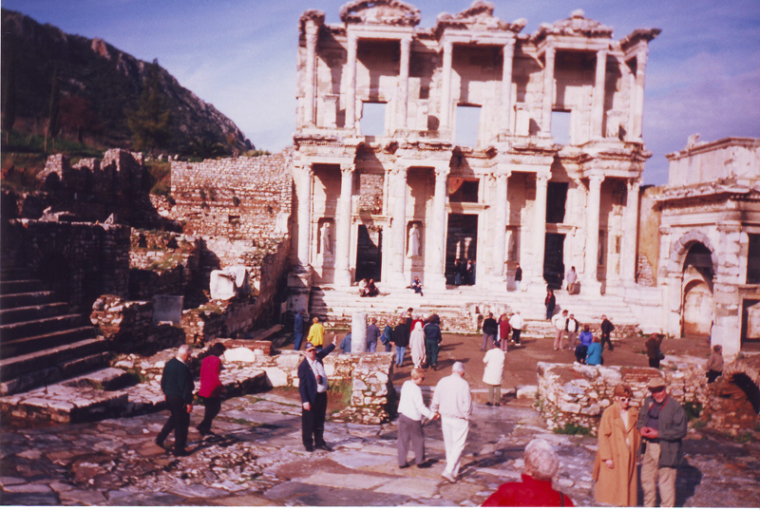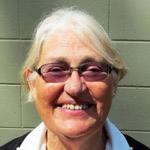
The original sourceof the above sentiment is Tertullian (~155-~240 AD), who was an early African church father based out of Carthage. He lived in the days of the Roman Empire and so was familiar with persecution and martyrdom. A martyr is someone who is killed because of their faith.
Tertullian’s most important writing is entitled The Apology, a work in which he provided a defense of the Christian faith to the provincial governors of the Roman Empire.
Towards the end of the document, Tertullian makes the memorable statement: “The oftener we are mown down by you, the more in number we grow; the blood of Christians is seed” (Apol. 50.13, original Latin: “Pluresefficimurquotiensmetimur a vobis; semen estsanguisChristianorum.”)
Another church father on martyrs
John Chrysostom (347-407) was the Archbishop of Constantinople, noted for his clear and powerful preaching. His exhortation to remember the martyrs remains as relevant for us today as when it was first spoken.
He said: (somewhat paraphrased) the very thought of martyrs wrought wonderful effects upon the minds of men: it confirmed them against the assaults of wicked spirits; it delivered them from impure and absurd thoughts; and set their minds in great tranquillity.
The death of the martyrs was still an exhortation to Christians;
the support of the Church;
the confirmation of Christianity;
the destruction of death;
the demonstration of the resurrection;
the reproach of devils;
the condemnation of Satan;
the doctrine of philosophy;
an exhortation to despise the things of this world;
and the way to lead men to the desire of a better;
a comfort to men in affliction;
a motive to patience; an engagement to fortitude;
and, in a word, the root and fountain, and mother of all that is good.
When you see the martyrs despise life, though you be the most stupid and negligent of all creatures, you cannot but entertain sublime and exalted thoughts, condemning pleasures, despising riches, and desiring to have your conversation in heaven.
If you languish under a disease, the Passions of the martyrs will afford you one of the strongest arguments to engage you in patience.
If you are oppressed with poverty, or any other evils, cast but your eye to the bitterness of the torments which they endured; and you have a present consolation and remedy for all the troubles that can befall you.
Wow – what a statement! Martyrdom is a largely unknown phenomenon among Western Christians, who might read these words and wonder what on earth they mean. But there are so many countries in the world now, where martyrdom is sadly a common occurrence.
Some of our present-day martyrs and maybe martyrs-to-be
Pakistan: The Sunday 30 January targeted assassination of Reverend William Siraj (75), the much-loved pastor of Shaheedan-e-All Saints' Church, has rattled the Christian community. The Church in Peshawar is probably more at risk now than at any time in Pakistan's history.
Yet there is hope: all who have prayed faithfully for Christians suffering under infamous blasphemy laws have cause to rejoice! For the first time in judicial history, Pakistan’s Supreme Court has released a Christian charged with blasphemy without trial. After five years in prison, Nadeem Samson is free on bail. Please pray that the Lord will protect him and his family from vengeful mobs, and that eventually he will be acquitted.
Pray for the Lord’s comfort for the family of Priyantha - falsely suspected of blasphemy, beaten to death and set alight.Continue to pray for Imran Khan who described this brutal murder as “a day of shame for Pakistan”.
Uganda – almost martyred: On Monday 24 January Christian apologist Charles Kamya (43) debated Muslims in Jinja, 80km east of Kampala. He used the Quran Sura 72 (https://quran.com/72) to teach about evil jinn (demons), before assuring his listeners that Issa (Jesus) is greater than all jinn.
To the horror of a local sheikh, many Muslims turned to Christ. On Saturday 29 January Kamya was scheduled to participate in a debate about Christianity and Islam in the Bwaise area of Kampala, organised by Bwaise area churches. But as Kamya approached the debate site, Islamic fundamentalists ambushed his car and beat and cut him almost to death.
One of the assailants told him, 'You have been terrorising our religion. Today Allah has called you, and you are going to meet him.' Knocked unconscious by a blow to the head with an iron bar, Kamya was left in a pool of blood until a passer-by found him and called the police. Because the assailants were monitoring his movements, Kamya could not remain in hospital, but had to be removed to a secure location.
China:On 11 February GaoHeng of Guangzhou Bible Reformed Church, faced a secret trial charged with 'picking quarrels and provoking trouble'. Gao's crime was to stand in a station of Guangzhou Subway Line Two, on 4 June 2021 (the 32nd anniversary of the Tiananmen Square Massacre) holding a sign that read, 'June 4, pray for the country.'
He also posted a picture of himself holding the sign to several social media sites. Alongside the image he posted these words:'People usually attribute the cause of all social sufferings to the ugliness of politics and social systems. The root cause, however, evolves from the sinful nature of human beings. In terms of the sinful nature, no fundamental difference exists between us and decision makers, directors and executors. I say, Thank you, God. We are all sinners. But because of Your amazing grace, we have the opportunity to repent, accept Jesus Christ as our Savior, and become Your children.'
In a totalitarian surveillance state like China, it would only be a matter of hours before GaoHeng would disappear. Though the trial has concluded, no verdict has been announced.
Let us pray that God would redeem these dark days; may Christ continue to build his Church in China (Matthew chapter 16, verse 18). May the Holy Spirit prepare the fields for the Gospel seed that the Church will continue to faithfully scatter by any means possible (Matthew chapter 13, verses 1-23).

Aira Chilcott is a retired secondary school teacher with lots of science andtheology under her belt. Aira is an editor for PSI and indulges inreading, bushwalking and volunteering at a nature reserve. Aira’s husband Bill passed away in 2022 and she is left with three wonderful adult sons and one grandson.
Aira Chilcott's previous articles may be viewed at http://www.pressserviceinternational.org/aira-chilcott.html